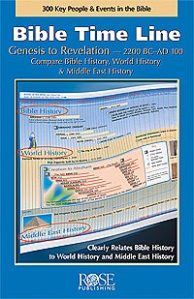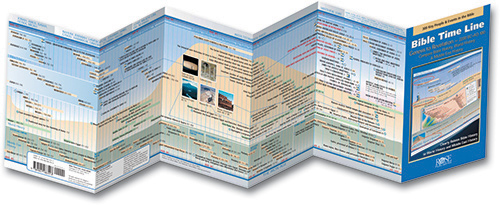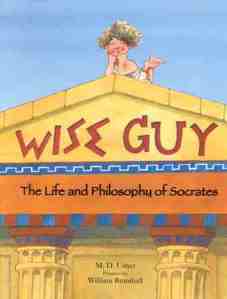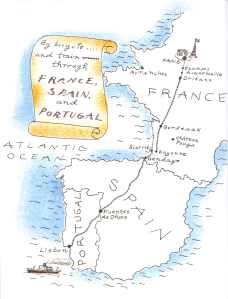This is a tale of 54,041 high school diplomas. That’s the number of public high school diplomas awarded in Tennessee last year (2006-2007). There are 324 public high schools in Tennessee. The public high schools are operated by 119 public school systems. There are 137 public school systems in Tennessee, but only 119 of them operate high schools.
I got curious this week about tracking down median ACT scores for Public vs. Private vs. Homeschool high school graduates. It turns out, even in the age of public data on the internet that this is not an easy question to answer. If the data to answer this question already exists somewhere on the internet, it’s extraordinarily well hidden. I spent several days searching for it… and I’m pretty handy with google. I did discover a blog in Kentucky which contained interesting articles commenting on the meaning of median ACT scores released for that state. Kentucky’s scores, released by ACT, Inc. of Iowa, give the median for ALL high school seniors, public, private, and homeschool. From the ACT data alone, you cannot tell how the public schools are performing, because ACT will not disagregate the data. Tennessee ACT scores are released in the same format as Kentucky.
But, it turns out, in Tennessee at least, there is a way to calculate median ACT score for the public schools. And if we know the number of public school students who took the ACT, and their median score, then we can calculate the median score for the remaining non-public school students.
In 2007, the median ACT for all students in Tennessee taking the test was 20.7. This is slightly below ( a half a point) the national ACT median score of 21.2. A half a point difference between two individual scores is probably not terribly significant. There are too many variables that can’t be controlled between two individual scores to ever be able to know why one student scored a half a point higher than another. BUT, comparing the median scores of two significantly sized groups IS meaningful… because all the individual variations offset and cancel each other out. 48,113 students took the ACT in Tennessee in 2007. 1,300,599 students took it nationwide. Comparing the averages for those two very large populations does tell us, with a pretty high degree of confidence, that Tennessee students did not perform quite as well as the national average.
But those 48,113 Tennessee students include public school, high school, and homeschool students. I have an inquiry in to ACT, Inc. asking them for the disaggregated data for those three groups, but they haven’t responded to me. The data would be very helpful in discussing some pretty pressing public policy questions about education. I don’t think it’s an accident that ACT doesn’t make the data readily available. I have the feeling that the data are not very flattering to public school administrators. And I suspect that’s why ACT hasn’t made them available.
But in Tennessee, there is another source of data about public school ACT scores – the Tennessee Department of Education itself. The Department has an online database that reports the number of students who took the ACT and the median composite score by school system. Actually, the online database has a great deal more information than that, but the median composite ACT scores are what I was interested in.
I don’t know whether it’s intentional or not, but the Tennessee DOE does not report the statewide median ACT score, nor does it make it easy to calculate, but all the pieces are there, on their website – they just have to be assembled.
So, I spent about four or five hours today, using the free wifi at University Pizza & Deli in Chattanooga, to pull up and copy off the median composite ACT scores for all 119 public high school systems in Tennessee. 35,725 public school students (out of 54,041 who graduate) too the ACT in 2007 – about 66.1% of the graduates. The median composite ACT score for all of them was 20.30. Since there were a total of 48,113 students who took the ACT in Tennessee, we can subtract out the public school students and the remaining 12,388 students were non-public school (private schools and home schools). And since we know the median composite ACT score for ALL students in Tennessee was 20.7 and the median for the PUBLIC school students was 20.30, we can calculate what the median composite score for the non-public schools was: that median composite ACT score in 2007 was 21.85.
So, we can now end the speculation and report with confidence that in 2007, in Tennessee, ALL students averaged a 20.7 composite ACT score, PUBLIC SCHOOL students averaged a 20.30 composite ACT score, and PRIVATE SCHOOL students averaged 21.85 composite ACT score. In other words, in 2007 private schools and home schools averaged 1.15 points higher on the ACT than the public schools. But of course, it’s the private school diplomas that the Department of Education thinks are suspect.
Since I had to compile the data for all 119 systems in a spreadsheet, I’ll post all of the data here – so that others can check my calculations, and so that the data will be available to everyone interested.
There are a number of other interesting observations about the public high schools that can be made from the data.
For example, here are the 10 public school systems in Tennessee with the HIGHEST median composite ACT scores:
| TENNESSEE | REGULAR | % TAKING | 2007 ACT Composite | ||
| SCHOOL SYSTEM | DIPLOMAS | ACT | n | median | |
| 1 | Maryville City | 321 | 76.9% | 247 | 23.67 |
| 2 | Oak Ridge City | 321 | 68.8% | 221 | 23.53 |
| 3 | Kingsport City | 400 | 82.8% | 331 | 22.74 |
| 4 | Greenville City | 209 | 66.5% | 139 | 22.68 |
| 5 | Williamson Co. | 1,966 | 80.6% | 1,584 | 22.54 |
| 6 | Tullahoma City | 239 | 77.4% | 185 | 22.35 |
| 7 | Johnson City | 398 | 73.1% | 291 | 22.34 |
| 8 | Pickett Co. | 46 | 58.7% | 27 | 22.11 |
| 9 | Alcoa City | 107 | 74.8% | 80 | 22.01 |
| 10 | Knox Co. | 3,257 | 66.6% | 2,168 | 21.97 |
And here are the 10 public school systems with the LOWEST median composite ACT scores:
| TENNESSEE | REGULAR | % TAKING | 2007 ACT Composite | ||
| SCHOOL SYSTEM | DIPLOMAS | ACT | n | median | |
| 1 | Fayette Co. | 187 | 65.2% | 122 | 15.80 |
| 2 | Memphis City | 5,741 | 67.9% | 3,898 | 17.56 |
| 3 | Hancock Co. | 62 | 38.7% | 24 | 17.96 |
| 4 | Haywood Co. | 170 | 71.2% | 121 | 17.98 |
| 5 | Lake Co. | 51 | 70.6% | 36 | 18.11 |
| 6 | Grainger Co. | 241 | 53.1% | 128 | 18.41 |
| 7 | W. Carroll | 79 | 54.4% | 43 | 18.47 |
| 8 | Campbell Co. | 299 | 58.2% | 174 | 18.63 |
| 9 | Union Co. | 196 | 53.1% | 104 | 18.63 |
| 10 | Hardeman Co. | 234 | 56.0% | 131 | 18.66 |
Here are the Here are the 10 public school systems in Tennessee with the HIGHEST percentage of graduating seniors who take the ACT:
| TENNESSEE | REGULAR | % TAKING | 2007 ACT Composite | ||
| SCHOOL SYSTEM | DIPLOMAS | ACT | n | median | |
| 1 | McMinn Co. | 292 | 92.5% | 270 | 20.33 |
| 2 | Union City | 77 | 88.3% | 68 | 19.93 |
| 3 | Kingsport City | 400 | 82.8% | 331 | 22.74 |
| 4 | Williamson Co. | 1,966 | 80.6% | 1,584 | 22.54 |
| 5 | Bradford City | 41 | 80.5% | 33 | 19.18 |
| 6 | Oneida City | 83 | 79.5% | 66 | 20.58 |
| 7 | Shelby Co. | 2,561 | 78.5% | 2,010 | 21.72 |
| 8 | Madison Co. | 679 | 78.2% | 531 | 19.27 |
| 9 | Tullahoma City | 239 | 77.4% | 185 | 22.35 |
| 10 | Huntingdon City | 70 | 77.1% | 54 | 20.20 |
And here are the Here are the 10 public school systems in Tennessee with the LOWEST percentage of graduating seniors who take the ACT:
| TENNESSEE | REGULAR | % TAKING | 2007 ACT Composite | ||
| SCHOOL SYSTEM | DIPLOMAS | ACT | n | median | |
| 1 | Hancock Co. | 62 | 38.7% | 24 | 17.96 |
| 2 | Fentress Co. | 60 | 41.7% | 25 | 19.92 |
| 3 | Sequatchie Co. | 116 | 44.8% | 52 | 19.71 |
| 4 | Greene Co. | 488 | 45.7% | 223 | 20.06 |
| 5 | Trousdale Co. | 91 | 47.3% | 43 | 19.12 |
| 6 | Johnson Co. | 156 | 47.4% | 74 | 19.81 |
| 7 | Meigs Co. | 94 | 48.9% | 46 | 20.37 |
| 8 | Washington Co. | 656 | 50.8% | 333 | 20.68 |
| 9 | Bledsoe Co. | 102 | 51.0% | 52 | 20.73 |
| 10 | Jefferson Co. | 449 | 52.1% | 234 | 20.52 |
Here are the 10 public school systems in Tennessee with the LARGEST number of graduating seniors who take the ACT:
| TENNESSEE | REGULAR | % TAKING | 2007 ACT Composite | ||
| SCHOOL SYSTEM | DIPLOMAS | ACT | n | median | |
| 1 | Memphis City | 5,741 | 67.9% | 3,898 | 17.56 |
| 2 | Davidson Co. | 3,601 | 64.1% | 2,307 | 19.11 |
| 3 | Knox Co. | 3,257 | 66.6% | 2,168 | 21.97 |
| 4 | Shelby Co. | 2,561 | 78.5% | 2,010 | 21.72 |
| 5 | Rutherford Co. | 2,328 | 66.1% | 1,539 | 20.91 |
| 6 | Hamilton Co. | 2,322 | 68.0% | 1,580 | 19.60 |
| 7 | Williamson Co. | 1,966 | 80.6% | 1,584 | 22.54 |
| 8 | Sumner Co. | 1,691 | 62.9% | 1,063 | 20.81 |
| 9 | Montgomery Co. | 1,644 | 59.9% | 984 | 21.23 |
| 10 | Wilson Co. | 1,040 | 67.9% | 706 | 20.70 |
And here are the 10 public school systems in Tennessee with the SMALLEST number of graduating seniors who take the ACT:
| TENNESSEE | REGULAR | % TAKING | 2007 ACT Composite | ||
| SCHOOL SYSTEM | DIPLOMAS | ACT | n | median | |
| 1 | S. Carroll | 31 | 58.1% | 18 | 20.28 |
| 2 | Van Buren Co. | 37 | 62.2% | 23 | 18.83 |
| 3 | Richard City | 37 | 70.3% | 26 | 20.15 |
| 4 | Bradford City | 41 | 80.5% | 33 | 19.18 |
| 5 | Pickett Co. | 46 | 58.7% | 27 | 22.11 |
| 6 | Hollow Rock-Bruceton City | 47 | 57.4% | 27 | 20.22 |
| 7 | Lake Co. | 51 | 70.6% | 36 | 18.11 |
| 8 | Fentress Co. | 60 | 41.7% | 25 | 19.92 |
| 9 | Hancock Co. | 62 | 38.7% | 24 | 17.96 |
| 10 | Huntingdon City | 70 | 77.1% | 54 | 20.20 |
The only significant sized sample of homeschoolers with ACT scores that I could find were 1997, 1998, and 2004 data released by ACT (cited on the HSLDA website). ACT reported that in 1997, 1,926 homeschoolers had a median composite ACT score of 22.5. ACT reported that in 1998, 2,610 homeschoolers had a median composite ACT score of 22.8. ACT reported that in 2004, 7,858 homeschoolers had a median composite ACT score of 22.6. These data are remarkably consistent over time AND they are significantly ABOVE the national averages. But remember, according the the Tennessee Department of Education, it is the homeschooler’s diplomas that are suspect.
Now, don’t you feel like you know the public school system in Tennessee much better?
Feel free to discuss amongst yourselves. Comments encouraged and solicited. Once again: here is the data. Or should that be, “here ARE the data…”
– Rob Shearer
Director, Schaeffer Study Center

















